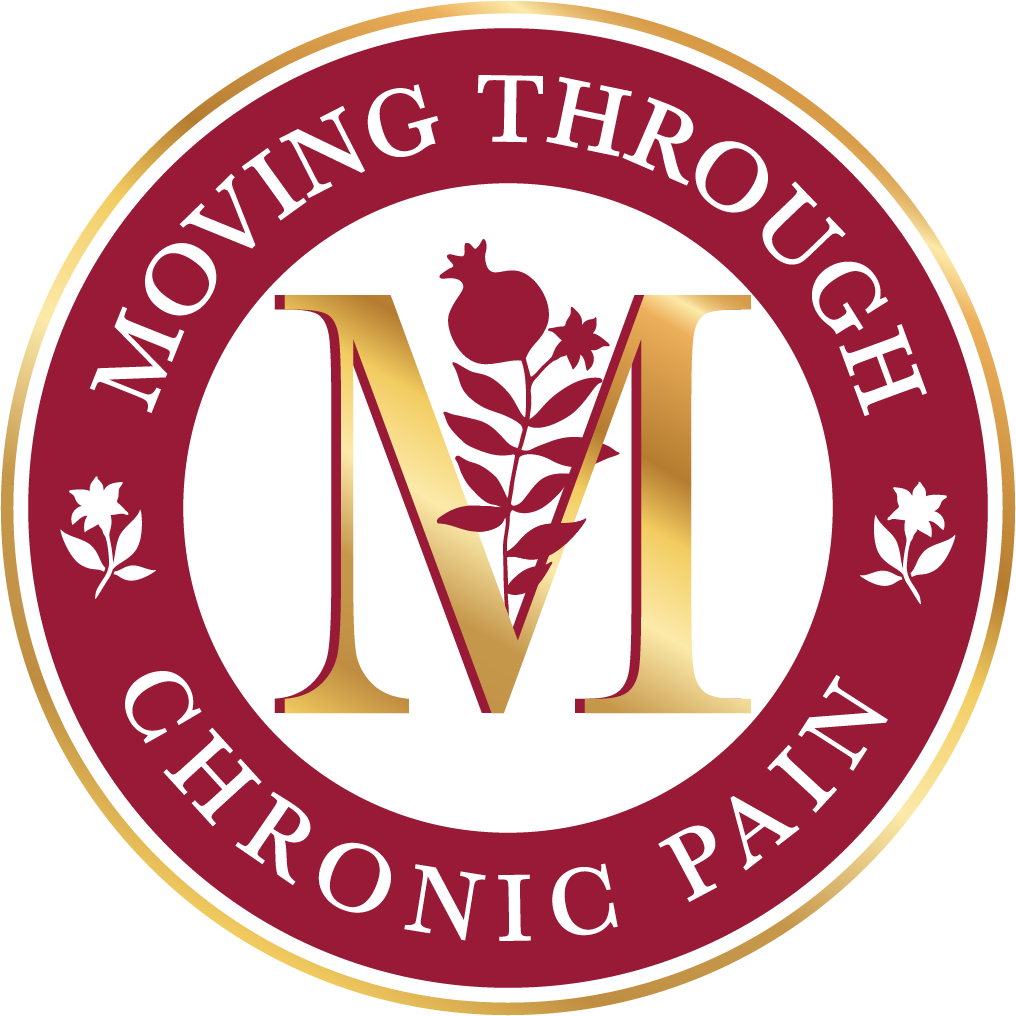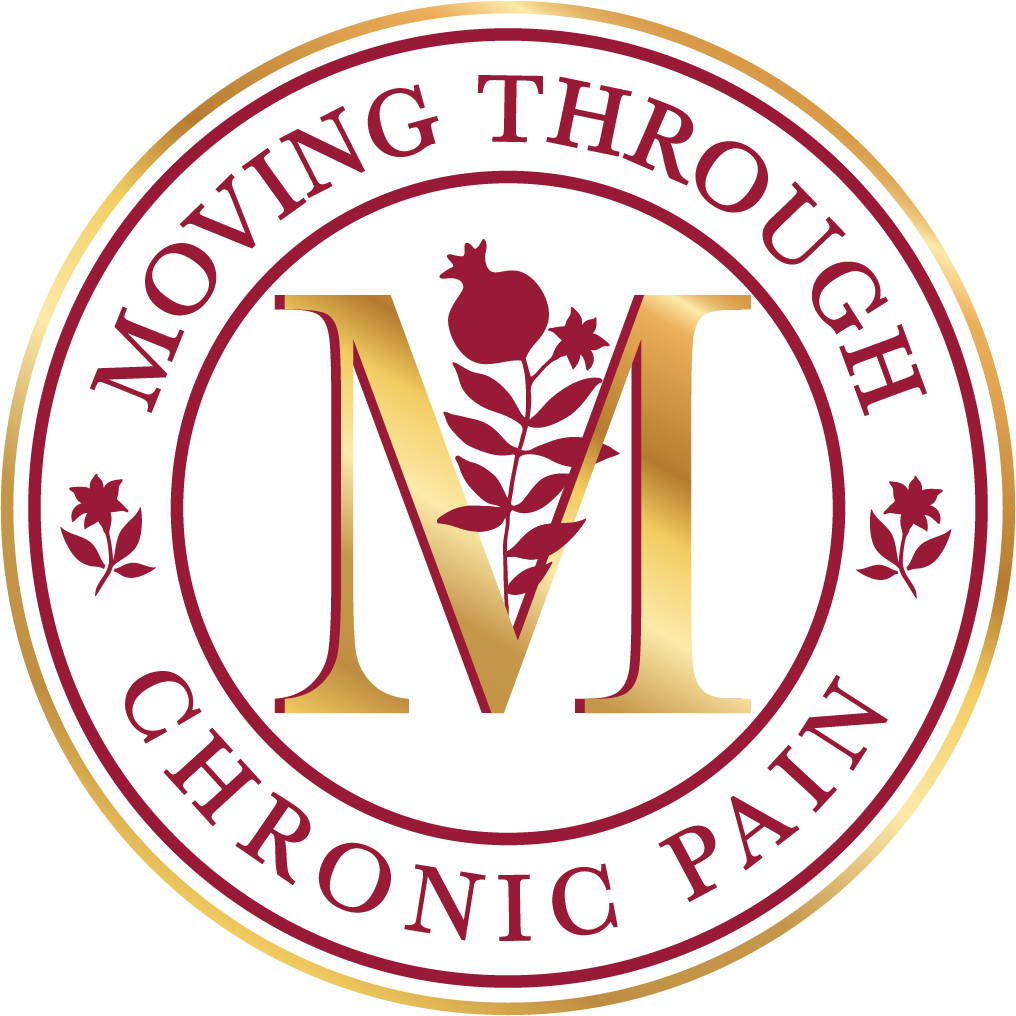HELPING MAKE YOUR CHRONIC PAIN JOURNEY EASIER
The pain cHronic•les
LATEST BLOG ARTICLES

Chronic pain is a complex and often misunderstood condition that affects millions of people around the world. It's important to note that every individual's experience with chronic pain can be unique, and what works for one person may not necessarily work for another. I’ll will be providing some insights into the causes, mechanisms, and challenges of chronic pain based on my personal experience in the hopes that it will help make your chronic pain journey easier.

Michelle Marikos, Founder & CEO
Moving Through Chronic Pain

Love and Relationships
HELPING MAKE YOUR CHRONIC PAIN JOURNEY EASIER
NAVIGATING RELATIONSHIPS THROUGH CHRONIC PAIN


Embrace Love, Compassion, and Understanding
I know I am not alone when I ask why it’s so darn hard to talk about feelings. It’s been a long-standing challenge for me to communicate what I am feeling to my loved ones. My go-to reaction is to simply shut down and say, “I’m fine.” The reason I do this? I think it boils down to the fact that I have never wanted to burden anyone with the pain that I feel. I want to pretend it does not exist. However, I also recognize that this response is the complete opposite of what I should be doing.
Navigating relationships while living with chronic pain can be an intricate dance of understanding, patience, and empathy. Empathy for them but also for ourselves. Of course, our loved ones do not know what we are going through; we are the only ones who know; only we understand what is going on in our minds and our bodies. But communicating our feelings is not something that comes naturally to most people. Some of us have a hard time emotionally opening up because oftentimes we simply don't know how. We don’t learn this in school – high school health classes mostly focus on nutrition or substance use, not healthy communication.
Talking about the ups and downs of chronic pain
Under normal circumstances, communicating about emotions is difficult. Add the impact of chronic pain and the communication stream becomes even more challenged. Chronic pain often extends far beyond the individual experiencing it; it can profoundly affect our relationships with loved ones, friends, and even coworkers. Those living with chronic pain will know how every interaction can be colored by the constant struggle against discomfort. Simple tasks, such as planning outings or engaging in activities, might require careful consideration and, at times, cancellation due to unexpected flare-ups. This unpredictability can strain relationships, leading to misunderstandings or feelings of frustration.
I know that I have used my pain as a means of excusing myself from something I simply don’t want to do – a movie that looks boring, a gathering or event where I have nothing in common with any of the other attendees, a meal at a restaurant that I think is overrated/too expensive. Rather than stating the real reason for me declining the invitations, I will simply say I am having a bad pain day. Only to then be hit by a plague-like feeling of guilt. Maybe you know the feeling – It sits there like a big, suffocating ball just below your throat, ruining the much-needed night of alone time you made up the excuse for in the first place.
It’s taken a long time but I have learned that using my pain as an excuse only makes it worse. I now recognize that I created certain ‘pain behaviours’, such as wearing my foam neck brace even after my healing was done. I was wearing the neck brace thinking that it would make my neck feel better when in fact it was a ‘crutch’ – it served to bring attention to my neck and signal to others that I was hurt. However, not only did I not need to wear it, but it was also making my neck pain worse due to the lack of movement. I was creating negative patterns around my pain, and my beliefs and behaviors were making the pain physically and mentally worse.
Clear and open communication becomes paramount in these situations. When we express our needs, limitations, and emotional struggles while also actively listening to the concerns of those around us, this can foster better understanding and mutual support. Both parties need to acknowledge the challenges without judgment, fostering an environment where openness and empathy prevail.
Friends and family members might grapple with feelings of helplessness or uncertainty about how best to support someone living with chronic pain. This is where you don your educator’s hat! Explain what is going on (as best as you can) and how they can help you. Encourage your loved ones to learn about chronic pain, its impact on daily life, and tell them about available support resources that can facilitate more meaningful and supportive relationships.
How can medical providers help?
Medical providers specializing in chronic pain can also contribute significantly to the dynamics of these relationships. By treating the physical symptoms and addressing the emotional and psychological aspects, they play a pivotal role in empowering patients and their support networks. Whenever I have attended an appointment and been encouraged to talk openly with a medical provider so that they can give me not just advice around my physical symptoms but also emotional guidance and support, that display of empathy is what gets me through the appointment, knowing that there is one more person who ‘gets me’ and help me believe that I can get though this, that I can navigate the next challenge.
In essence, relationships in the context of chronic pain thrive on compassion, understanding, and flexibility. It's a shared journey where both those of us living with pain and our support networks navigate the challenges together, fostering resilience, empathy, and unwavering support along the way.
Trust in the power of love
Love is a profound and beautiful experience that can be both a source of strength and a challenge when intertwined with chronic pain. It's a delicate balance between the depth of emotions and the realities of navigating life with persistent discomfort.
For those of us living with chronic pain, entering or maintaining romantic relationships might seem daunting. The fear of being misunderstood or feeling like a burden can be overwhelming.
I have a deep-rooted fear of upsetting or disappointing others. I have been known, on many occasions, to change the subject to avoid an argument, agree to something when I actually disagree, and not express my true feelings. These tendencies stem from my fear of not wanting to ‘own’ my pain or my struggles and not ‘bore’ those around me with my troubles. But I also know that when I hide my emotions because I fear how others will react, I deny my own opportunity to speak my truth. I have learned that I need to have a plan before opening up to someone about an issue by clearly defining what I am feeling, and how I would like to resolve the issue. I have to trust those around me. They tell me they want to help and I need to remember this simple mantra:
Love can be a powerful force, providing unwavering support and understanding during the most challenging times.
Key takeaways
Sharing feelings openly and honestly – expressing needs and limitations, and fostering a safe space for vulnerability is crucial. It's about finding a partner who is understanding and willing to learn and grow alongside you.
Adaptability – both parties might need to adjust expectations and routines; understand that plans might change due to unexpected pain flare-ups. Flexibility and empathy create the foundation for a supportive and nurturing bond.
Don’t overlook intimacy – chronic pain can significantly impact physical intimacy, and discussing this aspect openly with a partner can help navigate these changes together. Exploring alternative ways to connect emotionally and physically becomes essential in maintaining a fulfilling relationship.
Embrace the ups and downs together – accept that love, within the context of chronic pain, isn't without its challenges. It requires patience, understanding, and a willingness to embrace the journey and all its unpredictability. It's about finding someone who sees beyond the pain and cherishes the person beneath.
For more in-depth information on this topic, please refer to relevant medical journals and research articles.
CLICK HERE to subscribe to The Chronic•le newsletter.
#chronicpain #understandingpain #painawareness #love
Michelle Marikos’ fall from a balcony in her early twenties, and her subsequent decades long debilitating chronic pain, inspired her to launch Moving Through Chronic Pain and her PEER™ Method programs to facilitate deeper connections between those living with chronic pain and their community of providers, employers, and family members.

Michelle Marikos, Founder & CEO
Moving Through Chronic Pain

Love and Relationships
HELPING MAKE YOUR CHRONIC PAIN JOURNEY EASIER
NAVIGATING RELATIONSHIPS THROUGH CHRONIC PAIN


Embrace Love, Compassion, and Understanding
I know I am not alone when I ask why it’s so darn hard to talk about feelings. It’s been a long-standing challenge for me to communicate what I am feeling to my loved ones. My go-to reaction is to simply shut down and say, “I’m fine.” The reason I do this? I think it boils down to the fact that I have never wanted to burden anyone with the pain that I feel. I want to pretend it does not exist. However, I also recognize that this response is the complete opposite of what I should be doing.
Navigating relationships while living with chronic pain can be an intricate dance of understanding, patience, and empathy. Empathy for them but also for ourselves. Of course, our loved ones do not know what we are going through; we are the only ones who know; only we understand what is going on in our minds and our bodies. But communicating our feelings is not something that comes naturally to most people. Some of us have a hard time emotionally opening up because oftentimes we simply don't know how. We don’t learn this in school – high school health classes mostly focus on nutrition or substance use, not healthy communication.
Talking about the ups and downs of chronic pain
Under normal circumstances, communicating about emotions is difficult. Add the impact of chronic pain and the communication stream becomes even more challenged. Chronic pain often extends far beyond the individual experiencing it; it can profoundly affect our relationships with loved ones, friends, and even coworkers. Those living with chronic pain will know how every interaction can be colored by the constant struggle against discomfort. Simple tasks, such as planning outings or engaging in activities, might require careful consideration and, at times, cancellation due to unexpected flare-ups. This unpredictability can strain relationships, leading to misunderstandings or feelings of frustration.
I know that I have used my pain as a means of excusing myself from something I simply don’t want to do – a movie that looks boring, a gathering or event where I have nothing in common with any of the other attendees, a meal at a restaurant that I think is overrated/too expensive. Rather than stating the real reason for me declining the invitations, I will simply say I am having a bad pain day. Only to then be hit by a plague-like feeling of guilt. Maybe you know the feeling – It sits there like a big, suffocating ball just below your throat, ruining the much-needed night of alone time you made up the excuse for in the first place.
It’s taken a long time but I have learned that using my pain as an excuse only makes it worse. I now recognize that I created certain ‘pain behaviours’, such as wearing my foam neck brace even after my healing was done. I was wearing the neck brace thinking that it would make my neck feel better when in fact it was a ‘crutch’ – it served to bring attention to my neck and signal to others that I was hurt. However, not only did I not need to wear it, but it was also making my neck pain worse due to the lack of movement. I was creating negative patterns around my pain, and my beliefs and behaviors were making the pain physically and mentally worse.
Clear and open communication becomes paramount in these situations. When we express our needs, limitations, and emotional struggles while also actively listening to the concerns of those around us, this can foster better understanding and mutual support. Both parties need to acknowledge the challenges without judgment, fostering an environment where openness and empathy prevail.
Friends and family members might grapple with feelings of helplessness or uncertainty about how best to support someone living with chronic pain. This is where you don your educator’s hat! Explain what is going on (as best as you can) and how they can help you. Encourage your loved ones to learn about chronic pain, its impact on daily life, and tell them about available support resources that can facilitate more meaningful and supportive relationships.
How can medical providers help?
Medical providers specializing in chronic pain can also contribute significantly to the dynamics of these relationships. By treating the physical symptoms and addressing the emotional and psychological aspects, they play a pivotal role in empowering patients and their support networks. Whenever I have attended an appointment and been encouraged to talk openly with a medical provider so that they can give me not just advice around my physical symptoms but also emotional guidance and support, that display of empathy is what gets me through the appointment, knowing that there is one more person who ‘gets me’ and help me believe that I can get though this, that I can navigate the next challenge.
In essence, relationships in the context of chronic pain thrive on compassion, understanding, and flexibility. It's a shared journey where both those of us living with pain and our support networks navigate the challenges together, fostering resilience, empathy, and unwavering support along the way.
Trust in the power of love
Love is a profound and beautiful experience that can be both a source of strength and a challenge when intertwined with chronic pain. It's a delicate balance between the depth of emotions and the realities of navigating life with persistent discomfort.
For those of us living with chronic pain, entering or maintaining romantic relationships might seem daunting. The fear of being misunderstood or feeling like a burden can be overwhelming.
I have a deep-rooted fear of upsetting or disappointing others. I have been known, on many occasions, to change the subject to avoid an argument, agree to something when I actually disagree, and not express my true feelings. These tendencies stem from my fear of not wanting to ‘own’ my pain or my struggles and not ‘bore’ those around me with my troubles. But I also know that when I hide my emotions because I fear how others will react, I deny my own opportunity to speak my truth. I have learned that I need to have a plan before opening up to someone about an issue by clearly defining what I am feeling, and how I would like to resolve the issue. I have to trust those around me. They tell me they want to help and I need to remember this simple mantra:
Love can be a powerful force, providing unwavering support and understanding during the most challenging times.
Key takeaways
Sharing feelings openly and honestly – expressing needs and limitations, and fostering a safe space for vulnerability is crucial. It's about finding a partner who is understanding and willing to learn and grow alongside you.
Adaptability – both parties might need to adjust expectations and routines; understand that plans might change due to unexpected pain flare-ups. Flexibility and empathy create the foundation for a supportive and nurturing bond.
Don’t overlook intimacy – chronic pain can significantly impact physical intimacy, and discussing this aspect openly with a partner can help navigate these changes together. Exploring alternative ways to connect emotionally and physically becomes essential in maintaining a fulfilling relationship.
Embrace the ups and downs together – accept that love, within the context of chronic pain, isn't without its challenges. It requires patience, understanding, and a willingness to embrace the journey and all its unpredictability. It's about finding someone who sees beyond the pain and cherishes the person beneath.
For more in-depth information on this topic, please refer to relevant medical journals and research articles.
CLICK HERE to subscribe to The Chronic•le newsletter.
#chronicpain #understandingpain #painawareness #love
Michelle Marikos’ fall from a balcony in her early twenties, and her subsequent decades long debilitating chronic pain, inspired her to launch Moving Through Chronic Pain and her PEER™ Method programs to facilitate deeper connections between those living with chronic pain and their community of providers, employers, and family members.

Michelle Marikos, Founder & CEO
Moving Through Chronic Pain

